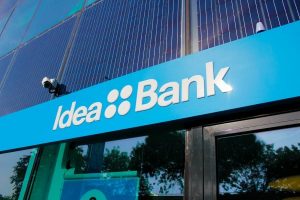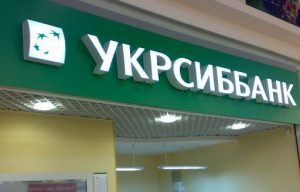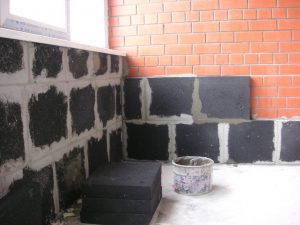
The single counterparty exposure limit (H7, should be no more than 25%) as of December 1 was violated by Prominvestbank (84.03%), Industrialbank (82.88%), Sberbank (53.13%) and Misto Bank (39.21%), according to the website of the National Bank of Ukraine (NBU).
According to the regulator, the related party transactions exposure limit (H9, should not exceed 25%) was violated by Megabank (37.56%), First Investment Bank (52.6%) and Unex Bank (29.21%).
The limit on bank total long open FX position (L13-1, should be no more than 10%) was violated by Prominvestbank (133.41%), Oschadbank (119.97%), PrivatBank (98.27%) and Industrialbank (13.15%).
The limit on bank total short open FX position (L13-2, should be no more than 10%) was violated by Prominvestbank (167.35%).
Misto Bank, recognized by the NBU as insolvent, violated the short-term liquidity ratio (H6, at least 60%), which amounted to 44.36%.

The fall of the Ukrainian economy in 2020 may amount to 5.5% of GDP with a further recovery of growth by 3.5-4% in the next two years, analysts at Deutsche Bank expect.
According to the materials of Emerging Markets Outlook 2021, experts admit that the next tranche of the International Monetary Fund (IMF) will be allocated to Ukraine in early 2021, which will pave the way for obtaining funding from other international partners.
At the same time, the central bank will leave the discount rate at 6% per annum, according to the review.

The net profit of Idea Bank (Lviv) amounted to UAH 77.254 million in January-September 2020, which is 73% less than in the same period of 2019 (UAH 285.564 million).
According to a report on the bank’s website, for the third quarter its net profit amounted to UAH 44.95 million, which is 61.5% less than in the third quarter of last year (UAH 116.57 million).
The net interest income of Idea Bank increased by 7% to UAH 1.258 billion in the nine months compared to the corresponding period of 2019.
The bank’s assets decreased by 11.9% to UAH 4.76 billion in January-September 2020, including loans to customers by 9.1% to UAH 3.76 billion.
The bank’s liabilities have decreased by 11.2% to UAH 3.98 billion since the beginning of the year, including customer funds by 10.95% to UAH 3.73 billion.
The bank’s net worth during this period decreased by 15.4% to UAH 784.22 million, the charter capital remained at the level of UAH 298.742 million.
Idea Bank (former Plus Bank) was founded in 1989. Its sole shareholder as of January 1, 2020 was the financial group Getin Holding S.A. (Poland).
According to the National Bank of Ukraine, as of September 1, 2020, Idea Bank ranked 24th among 75 operating banks in terms of total assets (UAH 8.287 billion).

The net profit of UkrSibbank (Kyiv) amounted to UAH 1.013 billion in January-September 2020, which is half of the same period in 2019 (UAH 2.062 billion), according to the bank’s quarterly reports posted on the bank’s website.
According to it, in the third quarter UkrSibbank’s net profit amounted to UAH 343.03 million, which is 44.5% less than in July-September 2019 (UAH 612.84 million).
The bank’s net interest income (after deductions on credit losses) decreased by 14.2% to UAH 4.15 billion in the nine months compared to the same indicator a year earlier, the net operating income decreased by 44.5% to UAH 1.24 billion.
The bank’s assets increased by 26.2% to UAH 67.13 billion in the nine months, including funds in other financial institutions at amortized cost by about 56.5% to UAH 22.83 billion.
Liabilities of UkrSibbank increased by 27.9% up to UAH 59.25 billion in January-September. In particular, customer funds increased by 28.2% to UAH 58.1 billion.
The bank’s equity capital increased by 14.8% to UAH 7.86 billion in the nine months and the charter capital remained at the level of UAH 5.069 billion.
UkrSibbank was founded in 1990. Its shareholders are BNP Paribas S.A (France), which owns 60% of the bank’s charter capital, and the European Bank for Reconstruction and Development with 40%.
According to the NBU, as of September 1, 2020, UkrSibbank ranked eighth among 75 operating banks in Ukraine in terms of total assets (UAH 67.146 billion).

The loan portfolio of banks in July-August 2020 increased by 3%, while in the first half of the year it decreased by 5%, Governor of the National Bank of Ukraine (NBU) Kyrylo Shevchenko has said.
“In July and August, the banks really lent to the population much more actively than in the first half of the year. Indeed, in the first half of the year we saw a reduction in the loan portfolio by 5%. In the two months, the portfolio grew by about 3%,” he said during a press briefing by the National Bank.
According to him, over the past three months, the banks have lowered lending rates, in particular, rates on loans for businesses are below 10%, while in the first half of the year the average rate on such loans was 11%.
“Regarding the rates for the population, unfortunately, there is no such a trend, with the exception of rates on mortgage loans. Rates on mortgage loans are average, if we started the year at a level of almost 20%, then in July they were about 13% and in August we expect average rates on mortgage loans to be even lower,” Shevchenko added.
In addition, he noted a decrease in the volume of non-performing loans (NPL), in particular, over the past two months, their share decreased by 1.5%, excluding the revised statistics for August.

In the period from May 1 to May 12, 2020, state-owned banks issued UAH 67 million of energy efficiency financing to those who plan to improve energy efficiency of their homes in 2020, according to the Energy Reform Internet portal.
State Agency of Ukraine on Energy Efficiency and Energy Saving said on Wednesday, May 13, that last week financing was received by another 1,544 households and some 122 associations of multi-apartment block co-owners took advantage of the program, namely, more than UAH 35 million for thermal insulation of apartment buildings, about UAH 32 million for energy efficient measures in private households, UAH 900,000 for solid fuel boilers.
“In fact, more energy efficiency financing was issued for a week than for the entire month of April, which amounted to UAH 63 million. More than UAH 130 million of financing for energy efficiency purposes has been issued to the population and the associations of multi-apartment block co-owners since the beginning of the program,” the agency said.